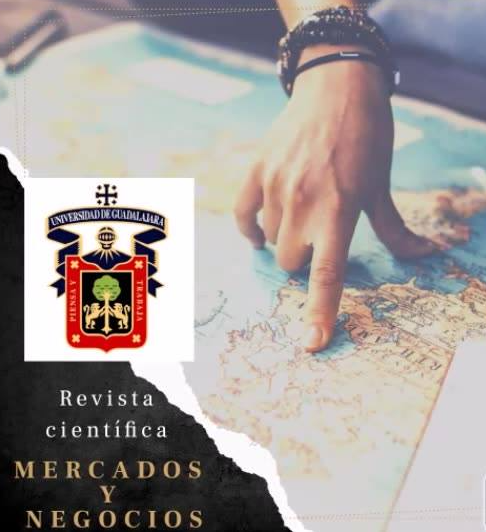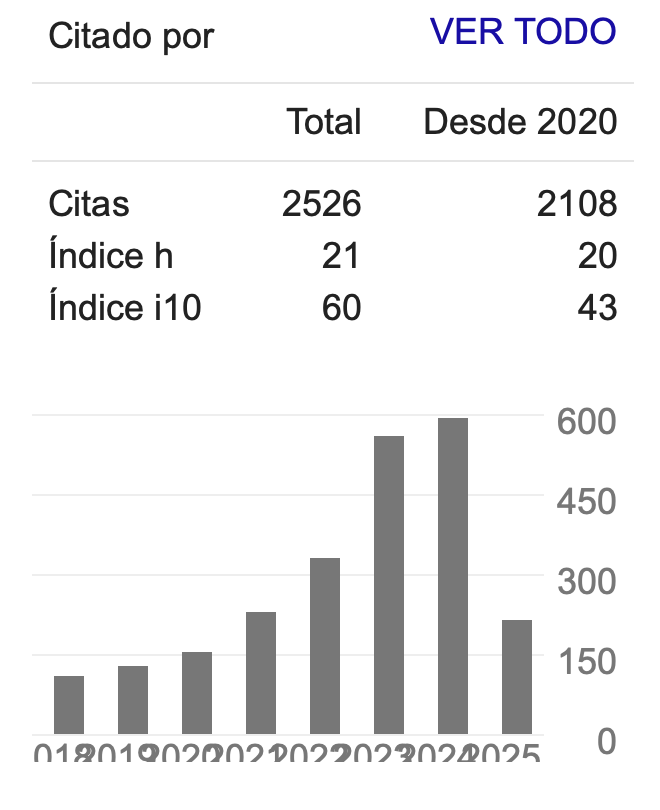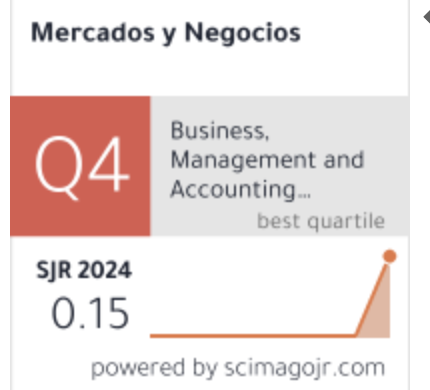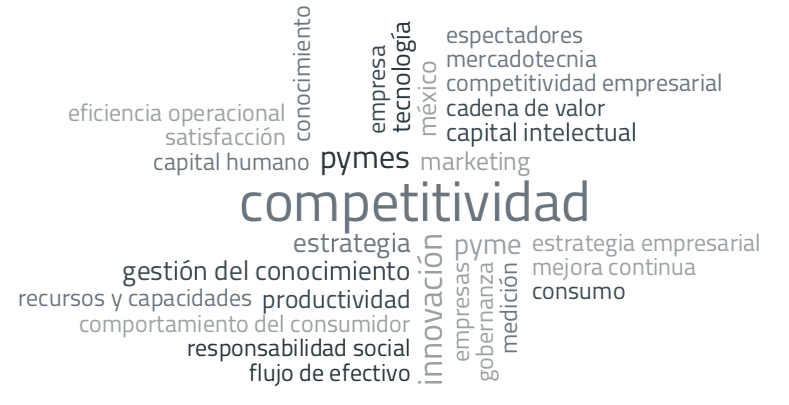Motivation as a Driver of Customer Service: The Impact on Automobile Dealerships
DOI:
https://doi.org/10.32870/myn.vi45.7656Keywords:
soft skills, motivation, customer serviceAbstract
The objective of the research is to analyze the relationship of Motivation as a soft skill that drives Customer Service in car dealerships, specifically in sales area employees. The survey was applied to a sample of 81 managers from the sales area of automotive agencies in the Monterrey metropolitan area. The proposed model was linear regression. The surveys were processed with SPSS Statistics. The hypothesis was confirmed about the positive and significant relationship of the predictor variable and the dependent variable in the employees of the sales area in the automobile agencies. It is suggested to analyze and build a complementary profile of the necessary soft skills of sales collaborators in car dealerships and other sectors.References
Abu-ELSamen, A. A., Akroush, M. N., Al-Khawaldeh, F. M., & Al-Shibly, M. S. (2011). Towards an integrated model of customer service skills and customer loyalty. International Journal of Commerce and Management, 21(4), 349-380. https://doi.org/10.1108/10569211111189365
ADANL. (2019). Asociación de Distribuidores de Automotores de Nuevo León, A.C. Nuevo Léón: ADANL. Link: http://www.adanl.org.mx/
Albrecht, K. (1990). La revolución del servicio. Bogotá, Colombia: Legis.
Alge, B., Gresham, M., Heneman, R., Fox, J. & McMasters, R. (2002). Measuring customer service orientation using a measure of interpersonal skills: a preliminary test in a public service organization. Journal of Business and Psycholog, 16(3), 467-476. https://doi.org/10.1023/A:1012833326181
AMDA. (2019). Quienes Somos. Nuevo León: AMDA. Link: https://www.amda.mx/quienes-somos/
Bowen, D. (2016). The changing role of employees in service theory and practice: An interdisciplinary view. Human Resource Management Review, 26(1), 4-13. https://doi.org/10.1016/j.hrmr.2015.09.002
Bullemore-Campbell, J. & Cristóbal-Fransi, E. (2021). La dirección comercial en época de pandemia: el impacto del COVID-19 en la gestión de las ventas. Información Tecnológica, 32(1), 199-208. http://dx.doi.org/10.4067/S0718-07642021000100199
Carlzon, J. (1991). El Momento de la Verdad. Madrid, España: Díaz de Santos.
Causado-Rodriguez, E., Charris, A. & Guerrero, E. (2019). Mejora Continua del Servicio al Cliente Mediante ServQual y Red de Petri en un Restaurante de Santa Marta, Colombia. Información Tecnológica, 30(2), 73-84. http://dx.doi.org/10.4067/S0718-07642019000200073
Colón-Aguirre, M. (2017). Service learning for improvement of customer service education in LIS. Education for Information, 33(1), 171-185. http://dx.doi.org/10.3233/EFI-160096
Coste, H., Lugo, Z., Zambrano, E. & García, C. (2017). Competencias laborales en el banco occidental de descuento. Scientific e-journal of Human Sciences, 12(36), 45-64. Link:
Curral, L. & Marques, P. (2009). Self-leadership and Work Role Innovation: Testing a Mediation Model with Goal Orientation and Work Motivation. Revista de Psicología del Trabajo y de las Organizaciones, 25(2), 165-176. http://dx.doi.org/10.4321/S1576-59622009000200006
Da Silva, J. P. & Leite, Y. V. (2010). Hospitalidad y Ambiente en los Hoteles: Su influencia en el comportamiento del consumo. Estudios y Perspectivas en Turismo, 19(3), 330 -345.
Dehghanpouri, H., Soltani, Z. & Rostamzadeh, R. (2020). The impact of trust, privacy and quality of service on the success of E-CRM: the mediating role of customer satisfaction. Journal of Business & Industrial Marketing, 35(11), 1831–1847. https://doi.org/10.1108/JBIM-07-2019-0325
Díaz, M. M., Muñoz, J. J. & Duque, C. M. (2021). Medición de la satisfacción a través de los atributos de la calidad percibida en una muestra de clientes de hoteles. Rotur, 15(1), 78-97. https://doi.org/10.17979/rotur.2021.15.1.5985
Faizal, S. M., Annual, N. & Rashidi, R. A. (2019). Soft skills among students: a case study of UiTM Cawangan Kelantan. Advances in Business Research International Journal (ABRIJ), 5(1), 1-8. https://doi.org/10.24191/abrij.v5i1.9967
Fornieles, A., Penelo, E., Berbel, G. & Prat, R. (2014). Escala para la calidad de los servicios y lealtad del consumidor en tiendas de alimentación. Universitas Psychologica, 13(3), 985-994. https://doi.org/10.11144/Javeriana.UPSY13-3.ecsl
García, M. & Forero, C. (2014). La motivación y satisfacción laboral como facilitadores del cambio organizacional: una explicación desde las ecuaciones estructurales. Psicogente, 17(31), 120-142. https://doi.org/10.17081/psico.17.31.1474
Gil, I., Berenguer, G., González, M. & Fuentes, M. (2007). Segmentando clientes a partir del valor del servicio. Una aproximación en el contexto de la relación entre empresas. Cuadernos de Economía a y Dirección de la Empresa, 31, 031-066. http://dx.doi.org/10.1016/S1138-5758(07)70082-8
Gómez, C. (2011). Retención de Clientes en agencias de eventos. Palabra Clave, 14(2), 325-342. . http://dx.doi.org/10.5294/pacla.2011.14.2.8
González, M., Frías, R. & Gómez, O. (2016). Análisis de la calidad percibida por el cliente en la actividad hotelera. Ingeniería Industrial, 37(3), 253-265.
Haque, M. F., Haque, M. A. & Islam, M. S. (2014). Motivational Theories – A Critical Analysis. ASA University Review, 8(1), 61-68.
Heckman, J., & Kautz, T. (2012). Hard evidence on soft skills. Labour economics, 19(4), 451-464. https://doi.org/10.1016/j.labeco.2012.05.014
Hennig‐Thurau, T. (2004). Customer orientation of service employees: Its impact on customer satisfaction, commitment, and retention. International Journal of Service Industry Management, 15(5), 460-478. https://doi.org/10.1108/09564230410564939
Hernández, V., Quintana, L., Mederos, R., Guedes, R. & García, B. (2009). Motivación, satisfacción laboral, liderazgo y su relación con la calidad del servicio. Revista Cubana de Medicina Militar, 38(1), 0-0.
Heskett, J., Jones, T., Loveman, G., Sasser, E. & Schlesinger, L. (2008). Putting the service-profit chain to work. Harvard Business Review, 72(2), 164-174.
Huo, Y., Chen, Z., Lam, W. & Woods, S. A. (2019). Standing in my customer’s shoes: Effects of customer-oriented perspective taking on proactive service performance. Journal of Occupational and Organizational Psychology, 92(2), 255-280. https://doi.org/10.1111/joop.12247
INEGI. (2009). Censos económicos. México: Instituto Nacional de Estadística Geografía Informática.
Leppard, J., Molyneux, L. & Santapau, A. (1998). Cómo mejorar su servicio al cliente. España: Gestión 2000.
Machorro, Á., Venegas, A., Resenos, E., Gallardo, M. & Acuña, B. (2009). La calidad en el Servicio como Ventaja Competitiva en una Empresa Automotríz. Revista de la Ingeniería Industrial, 3(1), 1-16.
Marinova, D., Singh, S., & Singh, J. (2018). Frontline Problem-Solving Effectiveness: A Dynamic Analysis of Verbal and Nonverbal Cue. Journal of Marketing Research, 55(2), 178-192. https://doi.org/10.1509/jmr.15.0243
Marulanda, F., Montoya, I., & Vélez, J. (2014). Teorías motivacionales en el estudio del emprendimiento. Pensamiento y gestión (36), 204-236.
Mody, M., Suess, C., & Letho, X. (2019). Going back to its roots: can hospitableness provide hotels competitive advantage over the sharing economy?. International Journal of Hospitality Management, 76(Part A), 286-298. https://doi.org/10.1016/j.ijhm.2018.05.017
Mohd, N., Kasim, A., Scarlat, C., & Muhamad, A. (2012). The Role of Individual Differences in Promoting Front Liners to Become Customer-Oriented: A Case of the Hotel Industry in Malaysia. Journal of Quality Assurance in Hospitality & Tourism, 13(1), 61–79. https://doi.org/10.1080/1528008X.2012.644185
Montoya, A., Alveiro, C., Saavedra, B. & Ramiro, M. (2013). El CRM como herramienta para el servicio al cliente en la organización. Visión de Futuro, 17(1), 130-151.
Najul, J. (2011). El capital humano en la atención al cliente y la calidad de servicio. Observatorio Laboral Revista Venezolana, 4(8), 23-35.
Navarro, J., Yepes, M., Ayala, Y. & Quijano, S. (2011). Un modelo Integrado de Motivación Laboral Aplicado a una muestra multicultural. Revista de Psicología del trabajo y de las organizaciones, 27(3), 177-190. https://doi.org/10.5093/tr2011v27n3a2
Parasuraman, A., Zeithaml, V. & Berry, L. (1988). Servqual: A multiple-item scale for measuring consumer perceptions quality service. Journal of retailing, 64(1), 12-40.
Robles, M. (2012). Executive perceptions of the top 10 soft skills needed in today’s workplace. Business Communication Quarterly, 75(4), 453-465. https://doi.org/10.1177/1080569912460400
Shin, J. W. (2021). Mediating effect of satisfaction in the relationship between customer experience and intention to reuse digital banks in Korea. Social Behavior and Personality: an International Journal, 49(2), 1-18. https://doi.org/10.2224/sbp.9753
Shoemaker, S. & Lewis, R. (1999). Customer loyalty: the future of hospitality. International Journal of Hospitality Management, 18(4), 345-370. https://doi.org/10.1016/S0278-4319(99)00042-0
Singh, A. & Jaykumar., P. (2019). On the road to consensus: key soft skills required for youth employment in the service sector. Worldwide Hospitality and Tourism Themes, 11(1), 10-24. https://doi.org/10.1108/WHATT-10-2018-0066
Solnet, D., Subramony, M., Ford, R., Golubovskaya, M., Jung, H. & Hancer, M. (2019). Leveraging human touch in service interactions: lessons from hospitality. Journal of Service Management, 30(3), 392-409.
Susskind, A., Kacmar, M. & Borchgrevink, C. (2003). Customer Service Providers Attitudes Relating to Customer Service and Customer Satisfaction in the Customer–Server Exchange. Journal of Applied Psychology, 88(1), 179–187. https://doi.org/10.1037/0021-9010.88.1.179
Swanson, S., Davis, C. & Zhao, Y. (2007). Motivations and Relationship Outcomes: The Mediating Role of Trust and Satisfaction. Journal of Nonprofit & Public Sector Marketing, 18(2), 1-25. https://doi.org/10.1300/J054v18n02_01
Tampubolon, M. P., Murniarti, E. & Sidabutar, N. F. (2021). The Effect of Work Motivation, Work Skills, Cognitive Behavior on Career Development of Civil Service Police Officers. Science and Technology Publications, 1(1), 478-485. https://doi.org/10.5220/0010317404780485
Tesone, D. & Ricci, P. (2006). Toward a Definitionof Entry-Level Job Competencies: Hospitality Manager Perspectives. (I. The Haworth Press, Ed.) International Journal of Hospitality & Tourism Administration, 7(4), 65-80. https://doi.org/10.1300/J149v07n04_04
Vázquez, R. (2014). La hospitalidad en el servicio: de la estandarización a la personalización. Hospitalidad ESDAI, 1(26), 23-36.
Vega, Y., Olivero, E. & Gastelbondo, E. (2020). Desarrollo de la capacidad de innovación en procesos de servicio al cliente del departamento de matrícula en instituciones de educación superior en Barranquilla, Colombia. Información Tecnológica, 31(5), 185-194. http://dx.doi.org/10.4067/S0718-07642020000500185
Wagner, U., Hansen, K. R., Kristensen, M. L. & Josty, M. (2019). Improving service-center employees’ performance by means of a sport sponsorship. International Journal of Sports Marketing and Sponsorship, 20(1), 43-60. https://doi.org/10.1108/IJSMS-10-2017-0109
Published
How to Cite
Issue
Section
License
Copyright (c) 2021 Roxana Dalila Escamilla, Maria Mayela Terán Cázares, Adriana

This work is licensed under a Creative Commons Attribution-NonCommercial 4.0 International License.
Mercados y Negocios by Department of Mercadotecnia y Negocios Internacionales. University of Guadalajara is licensed under a License Creative Commons Attribution-NonCommercial 4.0 International.
The author retains the copyright.








